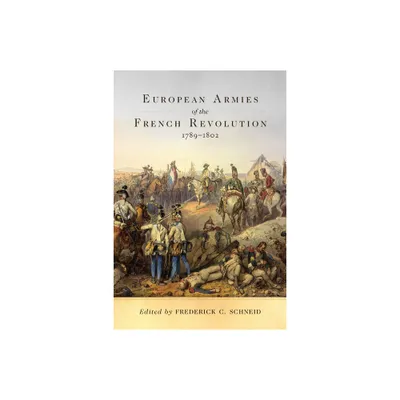Home
Patriots, Royalists, and Terrorists The West Indies: French Revolution Martinique Guadeloupe, 1789-1802
Loading Inventory...
Barnes and Noble
Patriots, Royalists, and Terrorists The West Indies: French Revolution Martinique Guadeloupe, 1789-1802
Current price: $80.00


Barnes and Noble
Patriots, Royalists, and Terrorists The West Indies: French Revolution Martinique Guadeloupe, 1789-1802
Current price: $80.00
Loading Inventory...
Size: Hardcover
*Product Information may vary - to confirm product availability, pricing, and additional information please contact Barnes and Noble
Patriots, Royalists, and Terrorists in the West Indies
examines the complex revolutionary struggle in Martinique and Guadeloupe from 1789 to 1802. The arrival of tricolour cockades – badges showing support for the French Revolution – and news from Paris in 1789 undermined the royal governors’ authority, unleashed bitter conflict between white factions, and encouraged the aspirations of free people of colour to equality and black slaves to freedom.
This book provides a detailed narrative of the shifting political developments, and analyses the roles of planter resentment of metropolitan control, social and racial tensions, and the ambiguity of revolutionary principles in a colonial setting. Recent scholarship has tended to over-emphasize the colonies’ agency, and to accentuate the conflict between masters and slaves, while downplaying metropolitan influences. In contrast, this study seeks to restore the importance of destabilizing political struggles between white factions. It argues that metropolitan news, ideas, language, and political culture – the "revolutionary script" from France – played a key role in shaping the revolution in the colonies.
examines the complex revolutionary struggle in Martinique and Guadeloupe from 1789 to 1802. The arrival of tricolour cockades – badges showing support for the French Revolution – and news from Paris in 1789 undermined the royal governors’ authority, unleashed bitter conflict between white factions, and encouraged the aspirations of free people of colour to equality and black slaves to freedom.
This book provides a detailed narrative of the shifting political developments, and analyses the roles of planter resentment of metropolitan control, social and racial tensions, and the ambiguity of revolutionary principles in a colonial setting. Recent scholarship has tended to over-emphasize the colonies’ agency, and to accentuate the conflict between masters and slaves, while downplaying metropolitan influences. In contrast, this study seeks to restore the importance of destabilizing political struggles between white factions. It argues that metropolitan news, ideas, language, and political culture – the "revolutionary script" from France – played a key role in shaping the revolution in the colonies.


















